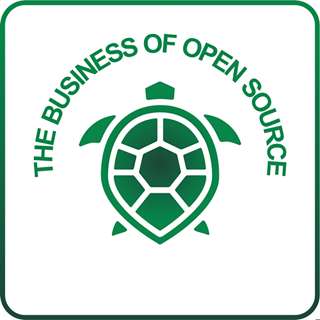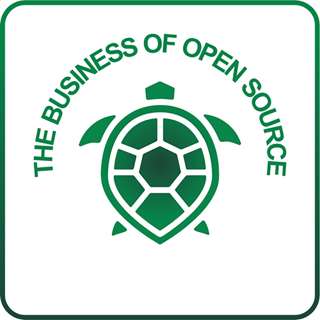
Transitioning Your Career Focus with Anurag Goel
Anurag Goel, Founder and CEO of Render, joins me on this episode of Cloud Native Startup. Learn about his beginnings at Stripe as employee #8, the birth of Render and how it solved a gap in the market, and his lessons learned while transitioning roles. We also discuss how open source fits into business strategy and much more.In this episode, we cover:Anurag and how he founded Render (00:27) Lessons learned while transitioning professional focus from engineering at Stripe to strategic business (05:42)Anurag’s advice for people who want to transition into larger business roles (11:11)The evolution of Render and its market and use case (13:57)The important role of open source in the developer tool ecosystem (19:46)Why Anurag chose to make Render open source (22:11)Strategies for making open source part of your platform (22:51)How open source fits into business strategy (23:55)Links:Anurag: www.twitter.com/anuraggoelRenderWebsite: https://render.com/Twitter: https://www.twitter.com/render
18 Aug 202129min

Starting and Scaling a K8s Security Company with Wei Dang
This week on Cloud Native Startup, I talked with Wei Dang, founder of cloud native security company StackRox which was acquired by RedHat in 2020. Highlights: How Wei met his co-founder and how the two of them saw the need for new types of security tools. Why talking to people throughout the Kubernetes ecosystem led to a series of a realizations that security in a cloud native world was going to me an increasingly important part of the conversations as more people adopted Kubernetes. Where the name StackRox came from. How even understanding if there was a market for a container security product. The moments wondering ‘are we building the right product’ was the scary. Why it’s important to focus at the beginning. How StackRox evolved from container security to Kubernetes security as the broader conversation shifted and the industry consolidated around Kubernetes. The moment Wei felt like there was product-market fit for StackRox. How Wei would define Kubernetes Security. The ways in which starting and growing a company forced Wei to learn new skills and gain knowledge. Why community is so important for companies in the Kubernetes ecosystem. How things have changed — and how they haven’t — since becoming part of Red Hat. Linkshttps://twitter.com/weiliendanghttps://www.linkedin.com/in/weiliendang/
28 Juli 202128min

Introducing Cloud Native Startup
The Business of Cloud Native is now Cloud Native Startup. Going forward, I'm moving away from talking to end users and focusing instead on what it takes to build a startup in the cloud native ecosystem. I'll be talking with startup founders, startup advisors and others in the ecosystem about making the transition from software engineer to startup founder, the stories behind companies we read about in the tech press and how to increase your odds of success in the cloud native startup world.
14 Juli 20212min

The Changing Role of Tech in the Enterprise with Abby Kearns
This week on The Business of Cloud Native, I spoke with Abby Kearns, CTO at Puppet, about the changing role of technology in the enterprise and how that changes things for software companies like Puppet. HighlightsWhatever the exact definition of cloud native, ultimately it is a way to improve scaling and resilience. The increasing importance of software for enterprises, because customers simply expect to use software to connect with companies of all sizes. Why cloud native is tied to digital transformation — because you can’t do one without the other. Picking tech and deploying it — that’s the easy part. But the people part is hard. Changing organizational structures is hard, but the companies that are succeeding in the new digital environment have to do the hard work. Why enterprises that are successfully using software to build a better relationship with your customers have top company leadership, from the CEO on down, investing in the transformation and incorporating technology into the company’s vision. How the changing role of technology in the enterprise has changed things for technology companies like Puppet. How technology decisions have now become board-level decisions, rather than decisions that made in a basement among technologists. How the changing landscape has forced Puppet to change its go to market strategy, positioning and messaging. The speed of change in the technology space seems to be accelerating and can lead to a lot of uncertainty. Why open source can be extremely rewarding, but requires companies to give up a huge amount of control that can be unnerving for enterprises. What is the role of a CTO at a technology company — is it tactical? Is it visionary? LinksAbby Kearns on LinkedInAbby Kearns on TwitterPuppet
7 Juli 202126min

Understanding the Kubernetes Journey with Kelsey Hightower
This week on the Business of Cloud Native, I talked with Kelsey Hightower, principle engineer at Google and Kubernetes expert. We talked about how technology like Kubernetes helps engineers focus more on solving business problems instead of constantly solving the same low-level problems. Highlights: How the evolution of technology — and the evolution of customers’ expectation — have made cloud native practices table stakes. The more established a company is, the more layers it likely has in its technology stacks. Unless a company is under 10 years old, it probably isn’t 100% cloud native because it’s rarely practical to throw away everything they’ve been doing in the past.Why it’s so challenging for companies to “disrupt themselves” by adopting cloud native technology unless they have serious motivation. How successful cloud native journeys involve both grand strategic visions and boring tactical plans that can actually be implemented. Why companies need to take into account the entire ‘infrastructure’ needed to adopt cloud native. How do you collect the data you need to reach your goals? Do you have the human resources, both technical and non-technical, to achieve their goals? How cloud native transitions can quickly become an ‘onion’ problem where there is always another layer that companies need to solve. How to convince practitioners who are trying to build customer tools internally that they should use Kubernetes or other open source projects. The myth of ‘tech displacing people.’ Usually evolution of technology leads to more jobs for software engineers, not less. How Kubernetes helps engineers focus on the business — and that is a good thing. The difference between 20 years of experience and 20 years worth of 1-year experience. Why Kubernetes is a platform for building other platforms. Why Kubernetes and cloud native are not a magic bullet that will completely transform your business. Links: Kelsey Hightower on Twitter
30 Juni 202130min

Turning IT into a Profit Center with Mark Thiele
This week on The Business of Cloud Native, I spoke with Mark Thiele of Edgevana about the definition of cloud and cloud native, where the line is between cloud and edge and situations where edge is the best option. Highlights: A discussion of situations where edge is the most appropriate option and how edge can help solve problems related to latency, data transfer costs, data sovereignty and network access. Why the right architecture depends on your business needs — there is no one size fits all way to design an edge solution. The relationship between data centers, public clouds and edge devices, including how co-location facilities fit into the equation. How IT is shifting from being a cost center in the business to being a profit center, and how this re-framing of IT is the root of fundamental change. What types of companies can successfully manage a data center and what types of companies should accept that they don’t have the skills and just go to the public cloud. Why success in the digital transformation is really a question of prioritization. Do you enjoy the podcast? Help others find it by leaving a review on Apple Podcasts and sharing on social media. LinksEdgevanaMark on LinkedInMark on Twitter
23 Juni 202131min

Building Community with Jana Boruta
This week on The Business of Cloud Native, I spoke with Jana Boruta, Director of Global Events at HashiCorp, about building community — for startups, for big companies and for open source projects with no budget. We also touched on digital-first events and how they differ from in person events. Highlights:What is community and why does it matter for companies building commercial tools for developers. Why community building is for everyone — from Nike to volunteer organizations to enterprise software. Is it ever too early for community building? How to determine if you’re building community for the right reasons. Why community building is a long game — not something that will show immediate ROI after a single event. Community building starts with creating a community blueprint. While some tactics are common, but every company’s community is going to be different and has to be authentic to the company. Why product feedback can be an important first step for building a community. Why starting with community building too early, when the product is too buggy, can be counter productive. Why you should avoid thinking of your community as a demand gen program. How create digital events that provide value for the attendees, even if they deliver it in a very different way than an in-person event. Links:Jana’s websiteJana on LinkedInHashiConfEpicConfDigital-First Events, Jana’s book about digital events
2 Juni 202127min

Security Forensics in a Cloud Native Environment with James Campbell
This week on The Business of Cloud Native, I spoke with James Campbell, CEO of Cado Security, about his background in the security world and why he felt like there needed to be a better way to manage security forensics in a cloud native environment. Highlights: Why it’s important to get better information about security incidents — or potential security incidents — to make better decisions. Why security has to be relatively easy because otherwise people will ignore it — at their peril. How cloud native features like auto-scaling are great for compute but make security, especially security forensics, more complex. Without enough data collected in real time, companies can end up unable to know whether or not an anomaly actually caused data loss, which data was impacted and what the root cause of incident was. How some of the most sophisticated attackers operate and how they can cause havoc even if the impacted container has spun down. The triggers that led Campbell and his co-founder to start Cado Security. Why having better information is critical to responding effectively to breaches, large and small. Links: James Campbell on LinkedInJames Campbell on TwitterCado Security
26 Maj 202125min






















